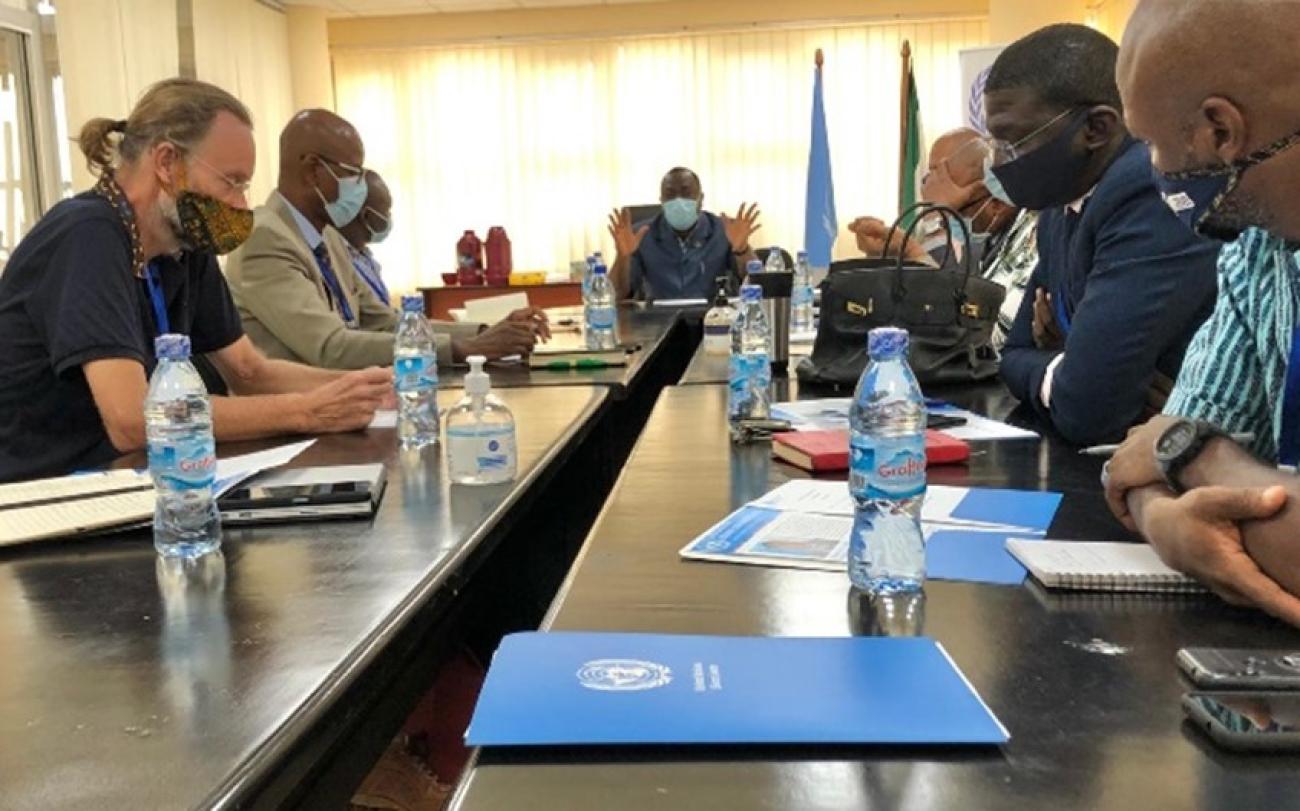UN RC in Sierra Leone Mr Babatunde Ahonsi, welcomed senior members of the Sierra Leone Chamber of Commerce, Industry and Agriculture for a dialogue on the SDGs
On 24 February, UN Resident Coordinator (RC) in Sierra Leone Mr Babatunde Ahonsi, welcomed ten senior members of the Sierra Leone Chamber of Commerce, Industry and Agriculture (SLCCIA) for a dialogue on partnerships to realize the Sustainable Development Goals (SDGs) in Sierra Leone. These Goals are at the heart of Agenda 2030, a global development agenda agreed by 193 countries in 2015.
The RC informed that the UN’s work in-country is guided by the UN Sustainable Development Cooperation Framework (2020-2023), aligned to Sierra Leone’s Medium-Term National Development Plan and the SDGs. He empathized the importance of the private sector in realizing SDGs, catalyzing the potential of strategic partnerships to deliver on the economic, social, and environmental objectives of the country. The private sector can and should play a crucial role in achieving development gains, particularly bringing in innovative solutions and technologies. Like the interconnected nature of the SDGs, stakeholders should also leverage each other’s comparative advantages to scale-up good ideas to simultaneously advance organizational outcomes and national development priorities in ways that leave no one behind.
The world has less than 10 years to achieve the Agenda 2030 and the discussion with SLCCIA centered around how Sierra Leone could accelerate activities to achieve these goals. Among other issues, the RC appealed to the business leaders to advocate and ensure gender balance, especially for board positions. SLCCIA President, Mr. Christopher John Forster noted that the Chamber has a special committee on Women Boards led by SLCCIA Second Vice President Ms. Amy E. Greene. There were also revealing and forward-looking exchanges around data analytics needs, as well as policy changes and regulatory reforms required on land tenure, taxation, capital market, and education for improving the business operating environment. As a result, a number of critical enablers were identified for enhancing the business climate for both large and small businesses in Sierra Leone.
SLCCIA representation included business leaders from different economic sectors, including renewable energy, tourism, manufacturing, textiles, agribusiness, and import-export business.
The RC ended the meeting by encouraging the private sector to go beyond conventional corporate social responsibility activities by leveraging their investments, agility, and innovative services, products and organizational practices to effectively contribute to the achievement of the SDGs in Sierra Leone. He also informed them about initiatives such as the UN Global Compact that guide businesses in support of the SDGs. He hopes the meeting is the first of many engagements with the private sector.

